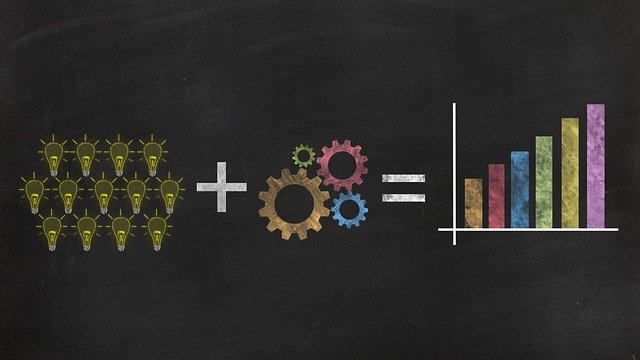What is Debt Refinancing? And How Does It Work?

Debt refinancing is a way to combine all of your debts into one lower monthly payment. But what you might not see is how the whole thing works and why it’s so important.
What is debt refinancing?
Debt refinancing is a process where you line up all your loans and credit cards and consolidate them into one monthly payment using a new, cheaper loan or credit card. If you need more guidance on debt consolidation, visit this link.
With careful planning and research, it’s possible to find the best deal when refinancing credit cards or student loans. Here are some things you should remember when thinking about whether to refinance your debts.
Debt Refinancing: How Does It Work?
Debt refinancing could be in the form of a reduced interest rate or a more extended payback period, where they lower monthly expenses.
It is distinct from debt settlement, allowing a single loan to be restructured and replaced by the new debt with better conditions. Several debts must be consolidated into a single loan for debt consolidation to be viable.
If your present loan had commenced more than a year or two ago, a refinance may be able to cut your interest rate. If your credit score has increased or your professional income has increased since the advance was made, you may be able to qualify for a lesser interest amount.
What Is the Main Reason For Business Owners To Refinance?
Another reason to refinance is to switch your loan’s variable rate to a fixed rate. Interest on a variable-rate loan might fluctuate with the market, forcing your monthly payments to fluctuate as well.
Since interest charges are now low, it may be a good idea to fix a loan with a fixed interest rate that does not vary over the term. You will not only benefit from the current economic climate, but you will also secure a monthly payout that is predictable.
If you’re having trouble making ends meet, refinancing an existing debt could result in a lesser payment that fits your budget better.
A lower monthly charge could free up funds you can use for other expenses or investments in your business.
Instead of refinancing each debt separately, you might consolidate them into one single loan if you have numerous current loans.
This is not to be confused with debt financing.
What is debt financing, you ask? Debt financing is a different process from debt refinancing, through which a company sells fixed income assets and securities to make money.
Why Should You Consider Debt Refinancing?
When servicing debt has become such a burden that it is impeding growth, businesses often refinance. It’s usually apparent when refinancing can help, but it’s also vital to consider the drawbacks in terms of a company’s capacity to repay the new loan.
It is critical to ensure that the terms and conditions are favorable to the business in the long run, and the choice to refinance must be carefully considered. On the other hand, debt refinancing might give a company a fresh lease on life by releasing the working capital it requires to grow.
So, make sure you check and get proper information before considering debt refinancing. It could be a bit risky, especially if you are a beginner with less knowledge about how refinancing works.
How A Borrower Can Refinance Debts
Borrowers can also refinance their debts to pay them off faster. However, some loans, such as mortgages and vehicle loans, have prepayment penalties, so the advantage of refinancing may be outweighed by the expense of paying the additional fee.
Using a Credit Card
Personal loans are frequently used to consolidate credit card debt. On an outstanding credit card amount, interest accrues quickly, making it difficult to keep track of the debt as it grows. Debtors are more likely to acquire a more affordable and manageable means to pay off their debt if they pay off their credit card bills with a personal loan.
Mortgages
If you have the means to make a larger monthly payment, a shorter term can save you a lot of money on lending rates. Fifteen-year loans have lower rates, and interest won’t be accruing for as long. Loan rates are higher than personal loan interest rates since they are applied monthly.
Automobile Loans
The majority of car owners opt to refinance their loans to reduce their monthly payments. A restructured vehicle loan arrangement might assist a borrower get their finances back on track if they are at risk of defaulting on their obligation.
Loans for Small Businesses
For many small business owners, refinancing business debt is a typical approach to enhance their bottom line. Switching to a different commercial real estate loan, similar to mortgage refinances, can often result in a reduced interest rate and monthly payment.
Should I Refinance My Mortgage?
In select circumstances, refinancing debt is a good idea. Calculate how long it will take for the savings from refinancing to outweigh the associated expenditures with a break-even analysis.
When it comes to refinancing, some homeowners overlook the fact that it may take a long time to recoup the costs, and they may not want to stay in the home long enough to reap the benefits.
If you’ve recently recovered from a difficult financial position that has harmed your credit score, you may have a loan or two with a high interest rate. Perhaps you’ve lost your job or experienced a medical emergency that has put you in debt.
Endnote
Debt Refinancing may make sense if it lowers your monthly bills by substituting a high interest rate with a reasonable interest rate.
If you want to refinance a debt, you must first read the terms of your present arrangement to check how much you’re spending. Define your financial goals and keep all the necessary points in mind before you apply for debt refinancing.
Considering the intricacies of debt refinancing, it is only wise to consult a professional before arriving at a decision.











